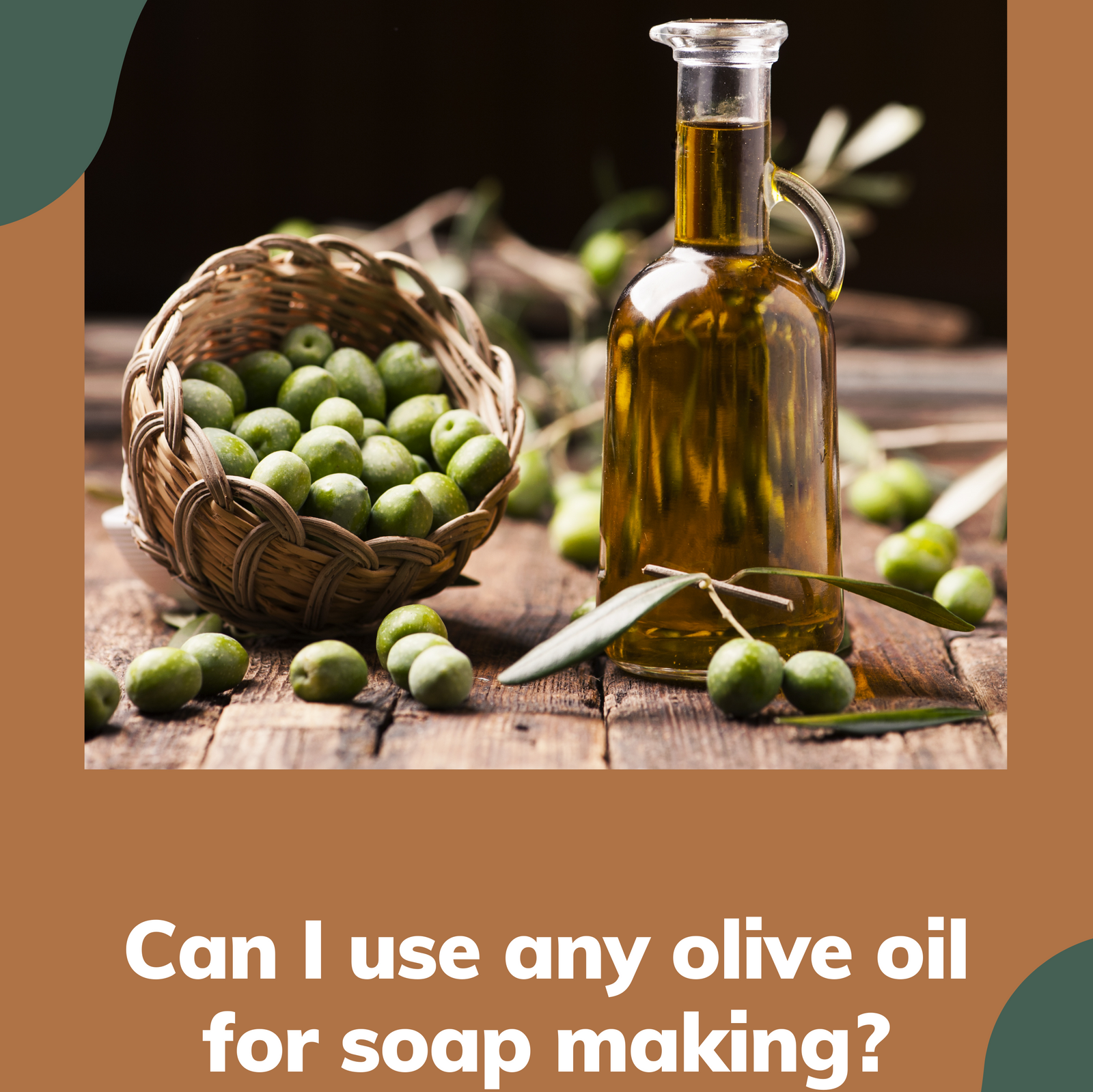Can I use any olive oil for soap making?

Does it matter what olive oil I use in soap making?
What does olive oil do in soap?
Both are questions that crop up regularly so today I am going to focus on all that is great about olive oil, why we like to use it in soap making, why cheap and cheerful is good and more.
Olive oil is a staple in many handmade soaps and one of the few that can be used exclusively on it's own to make soap (the other is coconut oil), formulated from long chain fatty acids it brings wonderful qualities to your finished product and is readily available in supermarkets, always a plus point in my eyes.
Virgin, standard or pomace olive oil? I have a couple of points that I feel are important here. If you are making 100% olive oil soap the most important factor will be the use by date on your chosen oil. Because of the long cure time you need to bear in mind that if the shelf life is short you have a higher risk of your soap going rancid or suffering from DOS (Dreaded Orange Spot). The consideration is colour, virgin olive oil is very green and that will impact on the colour of your finished soap. I will usually suggest you use the lightest colour olive oil you can find, this is one occasion where spending more does not get you a better result.
Can I use supermarket olive oil to make soap - yes absolutely. Keep it simple is my mantra!

Why use olive oil in soap making? Well the main reason I use it is because it brings a gentleness and conditioning feel to your soap. It is extremely moisturising and perfect for sensitive skins. These benefits come with some (perceived) negatives if you are using it as a high % of your recipe.
- Olive oil soap is low in lather and does not give those big bubbles, instead it creates a more lotion like, cream lather for gentle cleansing.
- On the soap calculators you may be a little surprised to see that the cleansing value of olive oil soap is nil. This does not mean it isn't cleaning your skin, as with everything in soap making it is all to do with the science but in very simple terms it has no lauric or myristic acid which can, in high %, strip the skin of natural oils and dry it out. It is for this reason that olive oil soap is so kind to your skin.
- Olive oil soap needs a LONG cure. You need patience for this one. Again - it is all in the science, olive oil is high in unsaturated fatty acids which not only take longer to saponify but also create a higher PH soap, the longer you leave it the harder and milder it gets . If you try and use it too soon you will have a slimy feeling bar of soap and virtually no lather. Leave it a year and it will be rock hard, mild and soo much nicer to use. You can help this along by using a water reduction - try 25/26%.
- Olive oil soap takes longer to reach trace - hang on in there, it will get there, but also remember as long as you are happy your oil and lye have emulsified and will not separate back out you do not have to be able to see that telltale trace . Just pour it in the mould and let it do it's thing.
Overall, olive oil is awesome in soap. You will find it in virtually every bar of handmade soap for that very reason (it will be listed a sodium olivate on the label). It is worth noting that some of the worlds oldest and most famous soaps are based on high levels of olive oil, Aleppo (Syria) and Castile (Spain) soaps being the 2 main ones that spring to mind.
Want to learn to make soap but have no idea where to start? Check out my step by step video course and eBook bundle which will give you everything you need to get started , understand the process and make your first batch of soap. And don't worry, you won't be on your own - support is available through my dedicated , students only facebook group.
Leave a comment